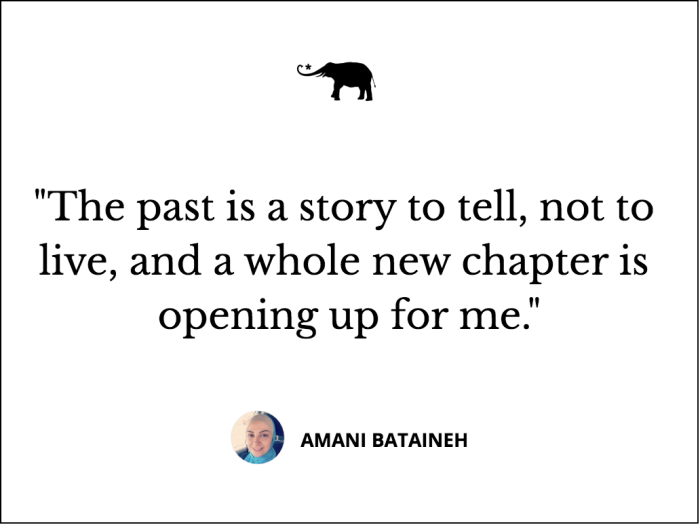View this post on Instagram
A question was raised on social media some weeks ago:
“If, after thousands of years, you were able to transfer a word/phrase to a culture that is so civilized and advanced, what would it be?”
My answer was: “This, too, shall pass.”
I have lived 42 years on this earth, and I have known this phrase for so many years. I even know one of the stories related to it, which is when an ancient king asked a wise man to choose a phrase to be engraved on his ring, which, when he reads in sadness, will make him feel happy, and when he reads it in joy, will make him feel sad. Nevertheless, many times in my sadness, I sink into it, thinking it will never end; in my joy, I mostly indulge in it too much.
Is it true that everything passes away?
Grief and joy are two faces of one coin; we all go through many types of them. We all have been through loss, divorce, diseases, losing money, and so on. But, at the same time, we’ve all had moments of success, happiness, gaining money, and so on.Whenever we are in the moment of an incident, we are trapped in its related thoughts, feelings, and consequences. Whenever the years pass and we remember it again, its shadows dance through our memories; that is only what remains.
So, what stays and what passes away?
While studying the nature of memory in the brain, it was shown that memory is fragmented into many parts. And one incident can be stored in many forms: the pictures, the aromas, the noises, the thoughts that are related to it, and the feelings it brought.
Mostly, our memories fade away by only creating new ones; what happens is that the new memories make the old ones idle and obsolete.
So, maybe nothing really passes away tangibly. Maybe it merely sleeps or transforms.
To put more evidence into this, in psychology, it is said that there are five phases of grief: denial, anger, compromise, depression, and acceptance. From my experience, this turned out to be true. Whenever we try to resist a phase or deny it, we get stuck in it until we choose to go through it. If acceptance, the last phase, truly exists, then does everything really go away?
I believe that we merely accept to hold on to the memories. We decide to move on only when we create new ones—when the new ones are active and the old is idle.
I lost my mother five and a half years ago. I decided immediately as an unconscious coping mechanism to focus on achieving, hold on to my responsibilities so hard, and not go through the full cycle of grief immediately.
In every phase of my grieving, I was resisting, but it didn’t work out. I was coming back and forth in every phase. But in the last two years, I was forced to live the whole cycle—I went through anger, tried to compensate for her loss, went through a horrible depression, until finally, I was in full acceptance.
I realized that any experience will not go away until we get the message behind it, and loss itself is not a marginal experience, especially when we lose a significant human being; it is one of the most fundamental existential experiences.
Now that I have experienced many facets of my grief throughout the last five years, I’m able to better understand a lot about myself, life, and people.
I followed some of these wise lessons:
>> Death is not a destination; it is the beginning of a new journey for the one who died—and the ones who are still alive remembering them.
>> Resisting to face the complex feelings of loss and deciding to compensate with different types of distractions will only make every phase of grieving worse and deeper.
>> Compensation phase is dangerous; we will not only ask for a replacement, but we will get stuck in denial and think that we already passed through it. The more we indulge ourselves in compensating our loss (with responsibilities, achievements, addictions), the more we will sink in the darkness.
>> The tragedy of loss might not be understood by those who haven’t gone through it; it is inevitable that the pain is mental, psychological, spiritual, and physical all at once. Not anyone can relate to the heaviness of the heart, the panic attacks, the shrinking of breaths, the mental distractions, the disability of moving on (physically and mentally), the vanishing of desires, and the alienation of the soul while trying to connect with those we have lost.
>> In the phase of compensation, we might become more compassionate and supportive, and we will give others the strength we might try to instill within ourselves. Unfortunately, we might collapse, and by then, we might complain or vent just to understand our pain. In doing so, some people might label us “toxic” or tell us to stop being weak, and only when we sow some strength will they clap. Remember to respect your sadness; it will be your greatest teacher and mentor.
>> We all react and process differently our experiences. That said, we don’t grieve the same way and we don’t react to events using the same set of behaviors. So don’t allow anyone to compare their experience with yours. Focus on yourself and be kind to yourself.
>> Going down into the spiral of grief is dark, but it holds the deepest truths about ourselves. When that happens, we will gradually see life from a whole different angle and will discover the deepest beliefs of others about who we are.
>> Grief varies from one person to another; it is not easy to handle. It is ugly, dark, psychotic, delusional, and it contains huge amount of pain. This will show us our own (and other people’s) true face.
>> Grief disconnects us from reality. We might fall many times, grope our way, head in wrong directions, make wrong decisions, and lose a lot through that marsh. It is okay.
>> The dark realm of grief might bring out many insecurities that have been hidden within us. Some people might go all in and see all their darkest parts. Others might choose to stay there, while the rest could heal and start again. I chose the latter, but it wasn’t a road paved with roses and sunshine.
>> Whoever stays while you go through your deepest darkness surely deserves your ultimate light.
Did it go away entirely? Did it truly pass?
I don’t think so. But I believe that I am back to life, connected more to reality, and created a new, genuine memory.
I know my mother’s illness and death created a new version of me, a version that is more merciful, more compassionate, more authentic, more realistic, wiser, with a clearer vision of myself, life, and people.
The past is a story to tell, not to live, and a whole new chapter is opening up for me. My mom will be the godmother of a new authentic life, although she is not physically here.
In this context only, “This, too, shall pass” would be something to be considered. No, it didn’t pass, but rather I passed through it to another threshold of living.
~
 Share on bsky
Share on bsky






Read 2 comments and reply